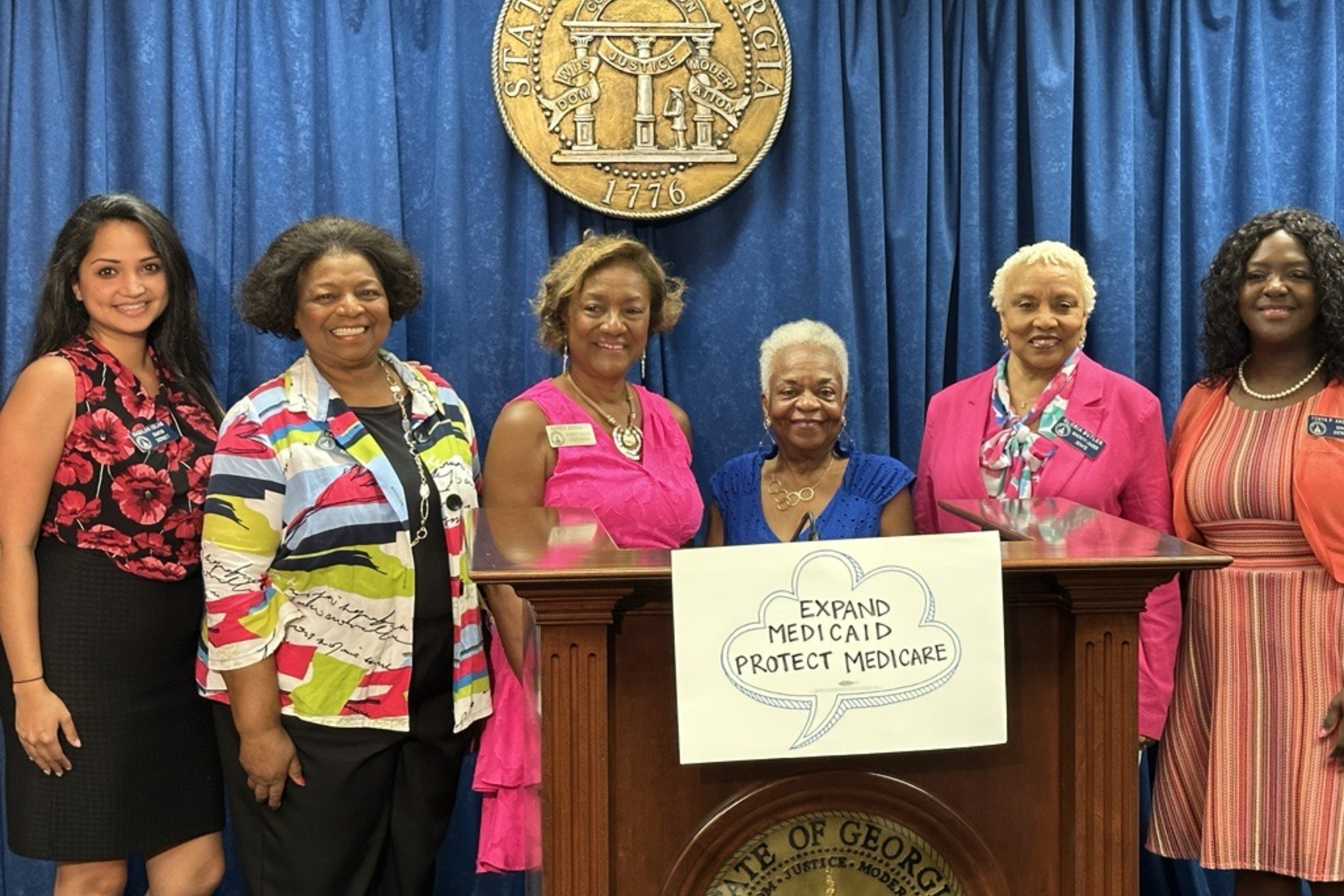Section Branding
Header Content
58 years ago, Medicaid and Medicare became law. In Georgia, the programs are as polarizing as ever
Primary Content
According to the National Archives, in the early 1960s, debates over health coverage dominated politics—leading President Lyndon B. Johnson to sign Medicaid and Medicare into law on July 30, 1965. The Johnson Administration saw the programs as a safety net for the elderly and uninsured Americans.
Regarding Medicaid, Georgia remains one of 10 states that hasn’t fully expanded Medicaid permitted under the Affordable Care Act instituted under President Obama — and that angers state Democrats.
“[Medicaid expansion] would provide health coverage for nearly 450,000 Georgians,” said state Senate Minority Leader Gloria Butler (D-Stone Mountain) during a press conference held by the Democratic Party of Georgia at the state Capitol. “Not to mention, [it would] create thousands of jobs and help struggling hospitals stay open.
While Gov. Brian Kemp agrees that more people in the state need health insurance, he contends full Medicaid expansion, long-term, would become too costly and restrictive.
“Instead of expanding a broken system, we are taking practical steps towards improved coverage and access statewide,” Kemp said in March.
Beginning July 1, Kemp instituted Georgia Pathways to Coverage, an alternative program he estimated would insure “upwards of 345,000” people. The program offers Medicaid coverage to eligible Georgians ages 19-64 who have a household income of up to 100% of the Federal Poverty Level (FPL), are not otherwise eligible for traditional Medicaid, and meet the qualifying activities threshold. Participants must work, volunteer, or go to school (college or technical school) at least 80 hours a month to qualify.
State Rep. Karen Bennett (D-Stone Mountain) called the work requirement “punitive."
“[The work requirement] will keep health care out of reach for many Georgians whose poor health is the very reason that they are unable to work,” she said.
As for Medicare, it remains a federal health insurance program for people who are 65 or older, but Republicans in Congress have discussed reforming the entitlement most seniors count on.
“I spent my life paying into benefits I knew I could rely on one day," said Gloria Jenkins, Chair of the Georgia Democratic Party’s Senior Caucus. "I worked hard and paid my dues, knowing that I would be supported when I got older, so I thought. To me, that’s a part of the American Dream.”


